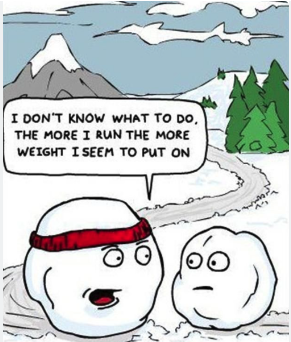Why Intense Workouts Might Be Stalling Your Weight Loss (And What to Do Instead!)
Why Intense Workouts Might Be Stalling Your Weight Loss (And What to Do Instead!)
Ever feel like you’re working out harder than ever but not seeing results? You’re not alone. Many women push themselves through intense workouts, believing that more sweat equals faster weight loss. But what if I told you that too much intensity might actually be slowing you down? Let’s dive into why this happens and what you can do instead.
The Role of Stress Hormones in Weight Loss
Intense exercise triggers the release of cortisol, the body's primary stress hormone. While cortisol plays a crucial role in energy regulation and metabolism, excessive levels can backfire on your weight loss efforts. Here’s how:
Increased Fat Storage: Chronically high cortisol levels tell your body to store fat, especially around your belly, as a survival mechanism.
Sugar Cravings Go Through the Roof: Ever notice you crave sweets after a hardcore workout? Blame cortisol—it makes you want quick energy in the form of sugar and carbs.
Slower Metabolism: Too much cortisol can mess with your thyroid, making your metabolism sluggish and making weight loss feel impossible.
How Intense Workouts Mess with Female Hormones
Women’s bodies aren’t designed the same way as men’s, and intense workouts can throw female hormones out of balance.
1. Increased Testosterone Levels
While women naturally have some testosterone, going too hard in the gym can spike it, leading to:
Irregular Periods: High testosterone can mess up your menstrual cycle, causing irregular or missed periods.
More Belly Fat, Not Less: You’d think extra testosterone would help burn fat, but for women, it can actually make fat stick around in stubborn areas.
Skin Issues & Hair Growth: Unwanted side effects like acne and increased facial or body hair can show up when testosterone gets too high.
2. Lower Estrogen and Progesterone
Over-exercising can also drain estrogen and progesterone, two key hormones that keep your metabolism and overall health in check. When they drop:
Your Metabolism Slows: Estrogen helps keep your metabolism humming—when it’s low, weight loss gets tougher.
Energy Levels Plummet: If you feel exhausted all the time, your hormones could be to blame.
Increased Risk of Bone Loss: Low estrogen can weaken bones, increasing the risk of osteoporosis.
Medical Conditions Where Intense Workouts Can Be Harmful
For some women, intense exercise isn’t just ineffective for weight loss—it can actually worsen existing health conditions, including:
Hypothyroidism: Over-exercising can further slow down an already sluggish metabolism and lead to extreme fatigue.
Polycystic Ovary Syndrome (PCOS): Intense workouts can spike testosterone even more, exacerbating symptoms like weight gain, irregular periods, and acne.
Adrenal Fatigue: Overworking your body with high-intensity exercise can stress the adrenal glands, leading to burnout, extreme fatigue, and weight gain.
Chronic Fatigue Syndrome (CFS): Pushing too hard can worsen symptoms like exhaustion, muscle pain, and brain fog.
Autoimmune Disorders (e.g., Hashimoto’s, Rheumatoid Arthritis, Lupus): High-intensity workouts can increase inflammation and make symptoms worse.
A Smarter Way to Exercise for Weight Loss
Instead of punishing your body with endless high-intensity workouts, try a balanced approach that actually works:
Strength Training Over HIIT: Lifting weights helps build lean muscle without spiking stress hormones.
Low-Impact Movement is Your Friend: Activities like yoga, pilates, and walking support weight loss without stressing out your body.
Prioritize Rest & Recovery: Taking rest days and managing stress helps keep hormones balanced and weight loss steady.
Listen to Your Body: Instead of forcing grueling workouts, pay attention to how your body feels and adjust accordingly.
More isn’t always better when it comes to exercise. If you’re constantly working out hard but not seeing results, your body might be screaming for a different approach. By understanding how stress and hormones impact your weight loss journey, you can make smarter choices—ones that work with your body instead of against it.
